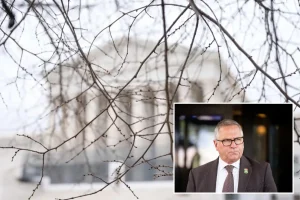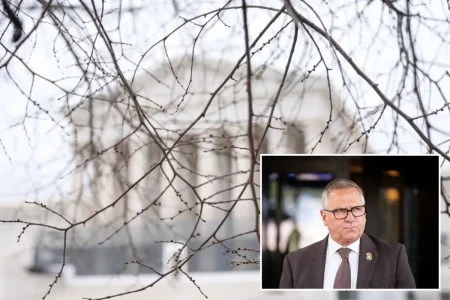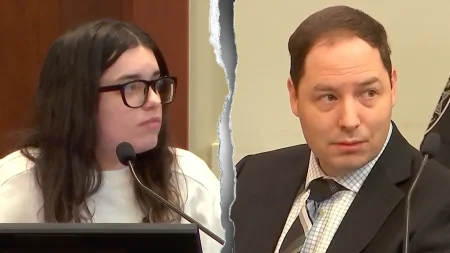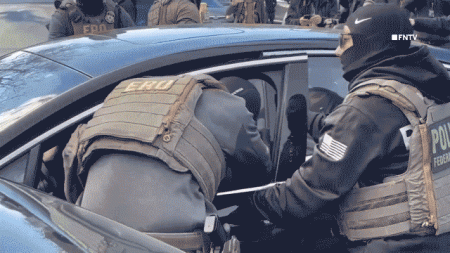Illinois Man Charged After Alleged Violent Threats Against Trump Amid Personal Crisis
In a troubling case highlighting the intersection of personal hardship and political extremism, 57-year-old Trent Schneider of Winthrop Harbor, Illinois, now faces serious federal charges for allegedly making violent threats against former President Donald Trump. As his home approached foreclosure, authorities say Schneider posted multiple inflammatory videos on Instagram in which he explicitly called for violence against public officials, including what prosecutors describe as direct threats to execute Trump. The case, unsealed Monday in the Northern District of Illinois, charges Schneider with making interstate threats to kill public officials—a charge that carries potential penalties of up to five years in federal prison and fines up to $250,000.
The investigation began when a concerned viewer in Florida reported one of Schneider’s videos to authorities, prompting the Secret Service to identify and monitor his social media activity. According to court documents, Schneider posted multiple videos beginning October 16 in which he expressed extreme anger toward judges, doctors, lawyers, and police officers, claiming they had committed “real crimes” against people like him. In one particularly alarming video, which prosecutors say he reposted nearly 20 times while tagging Trump Tower Chicago, Schneider allegedly stated: “I’m going to get some guns. I know where I can get a lot of guns and I am going to take care of business myself… people need to die and people are going to die… especially you, Trump. You should be executed.” Each post reportedly carried the same caption claiming it was “not a threat” while simultaneously stating Trump “should be executed.”
The criminal complaint reveals that Schneider’s alleged threats appeared directly connected to his personal financial crisis, with his home scheduled for auction on November 4, 2025. Throughout his posts, he repeatedly referenced “losing everything” and blamed political and judicial figures he called “frauds” for his financial collapse, suggesting his extreme statements stemmed from profound personal distress as he faced homelessness. This connection between personal hardship and radicalized threats highlights the complex factors that can drive individuals toward extremist rhetoric during times of crisis, with Schneider’s apparent desperation manifesting in increasingly alarming online behavior targeting public officials.
When Secret Service agents attempted to question Schneider at his home on October 22, they observed cameras set up on tripods in his driveway, suggesting he may have been recording his own activities. According to the affidavit, Schneider responded to their presence by yelling at officers to leave his property. More concerning, authorities allege that after this encounter, he posted a video of the agents walking away—accompanied by the same caption calling for Trump’s execution. This defiance following direct contact with federal authorities significantly escalated concerns about the seriousness of the potential threat, leading to his eventual arrest with the assistance of a SWAT team from the Lake County Sheriff’s Office on Monday.
This isn’t Schneider’s first encounter with law enforcement over threatening behavior. The criminal complaint notes that in 2022, authorities interviewed him regarding violent social media posts targeting public officials. Later that same year, he was arrested after allegedly threatening to “shoot up” a T-Mobile store, though a court subsequently found him unfit to stand trial in 2023. This history of concerning behavior and previous mental health determinations adds critical context to the current case, raising questions about the intersection of mental health challenges, personal crisis, and potential violence—as well as the challenges authorities face in addressing threats from individuals with documented histories of concerning behavior.
The case underscores growing concerns about political violence in an increasingly divided America, where social media can amplify extreme rhetoric and allow individuals in crisis to broadcast threats widely. While free speech protections are fundamental to American democracy, the law has long recognized that “true threats” fall outside First Amendment protection—a distinction prosecutors appear to be emphasizing in Schneider’s case. As political tensions remain high during another contentious election cycle, law enforcement agencies continue monitoring potential threats against public figures across the political spectrum, attempting to distinguish between protected political speech and genuine threats to public safety. Schneider’s case illustrates the serious legal consequences individuals may face when crossing that line, regardless of their personal circumstances or motivations.











